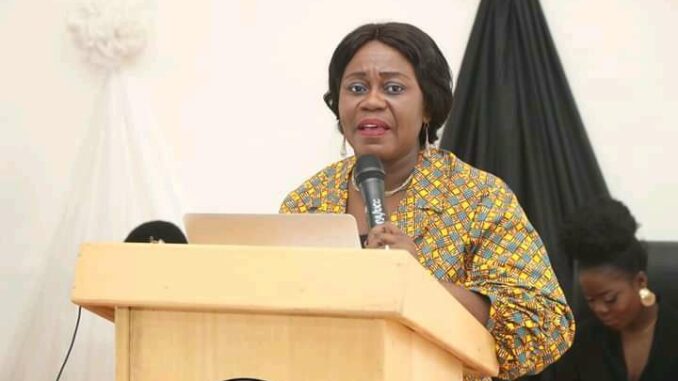
In a stirring display of defiance, hundreds of demonstrators clad in red and black flooded the streets of Accra on Monday 06 May to protest the unprecedented suspension of Ghana’s Chief Justice, Gertrude Torkornoo.
The protest, spearheaded by the opposition New Patriotic Party (NPP) and backed by three allied political groups, decried what they described as a blatant affront to the judiciary’s independence and a violation of constitutional safeguards. Chief Justice Torkornoo’s suspension—initiated by President John Mahama following the submission of three undisclosed petitions—marks the first time in Ghana’s democratic history that a sitting head of the judiciary has been stood down from office.
Amid chants and placards demanding her immediate reinstatement, the opposition accused President Mahama of overreach and political manipulation. NPP National Organiser Nana Boakye Yiadom characterised the move as “a calculated attack on democratic institutions,” calling it an abuse of executive power aimed at compromising judicial impartiality. Echoing this sentiment, the Ghana Bar Association had earlier released a strongly worded statement insisting that the president’s action lacked legal foundation and circumvented due process. Yet, government allies and some legal scholars maintain that the president acted within constitutional bounds, citing provisions that permit presidential intervention in cases of alleged judicial misconduct.
The unfolding drama has ignited fierce national debate over the fine balance between executive oversight and judicial independence. While the law grants the Chief Justice security of tenure, it also provides mechanisms for removal under exceptional circumstances such as incompetence or misbehaviour. Critics argue, however, that the opaque nature of the allegations and the absence of clear procedural transparency have undermined public trust. “The judiciary is under attack,” lamented protester Serwaa Akoto, while another demonstrator, Charles Oteng, warned of growing youth unrest. As Chief Justice Torkornoo awaits a summons before the investigative committee, the nation watches closely—caught between constitutional interpretation and the clarion call for justice.
